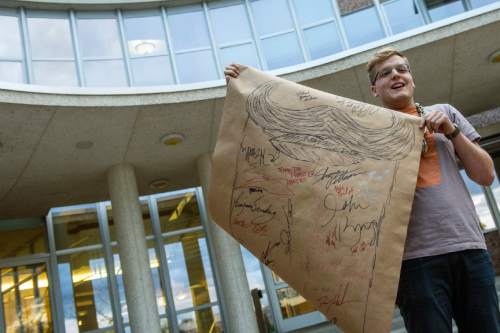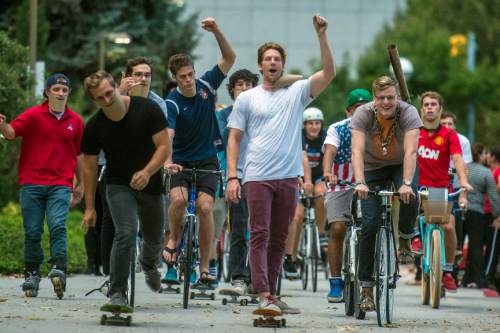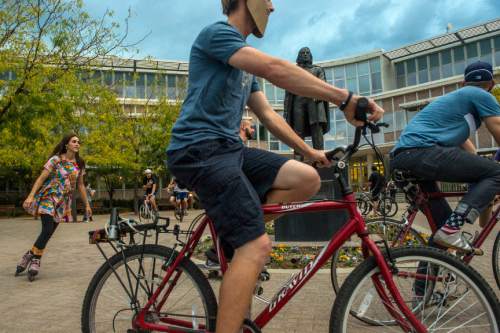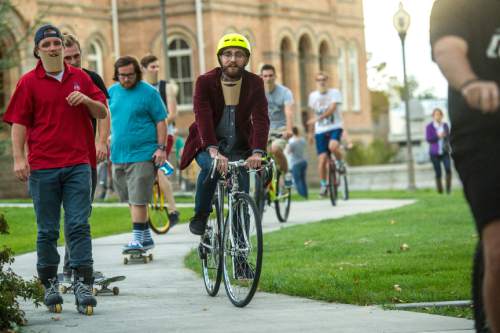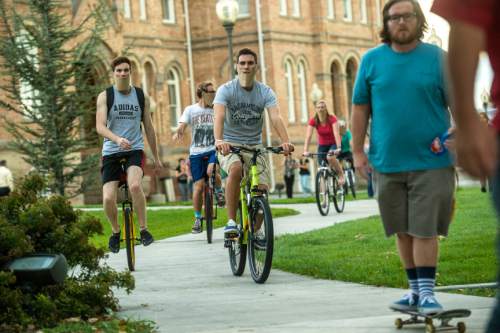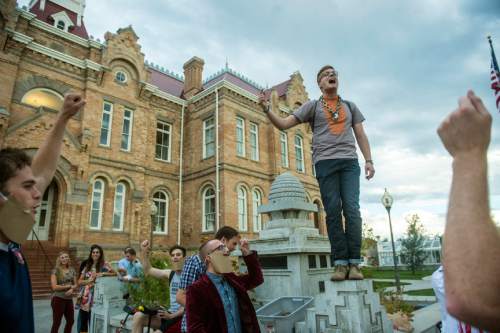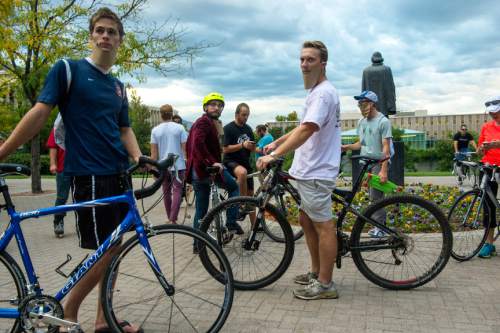This is an archived article that was published on sltrib.com in 2015, and information in the article may be outdated. It is provided only for personal research purposes and may not be reprinted.
Brigham Young University is spelling out the rules for who can flout its no-beard policy and still pass class.
For the first time, the private university has outlined guidelines for exemptions to its clean-shaven rule, effective this semester.
But men on campus shouldn't toss their razors just yet: For most, the no-scruff standard still applies, spokeswoman Carri Jenkins said Wednesday.
For a small group of campus Muslims, Sikhs and other students who sport beards to honor their non-LDS faith, the change is meaningful — and an apparent turnaround from recent years, when religious reasons didn't make the grade, some students said Wednesday.
The university maintains its policy over the years has remained constant.
Students with scarring or sensitive skin must get a note from a campus doctor. Non-LDS students who wear beards as part of their faith must secure approval from a chaplain. Student actors in film or theater roles requiring facial hair must get a note from the theater department.
After that, final permission comes from the honor code office.
In the past, the school made exceptions on a case-by-case basis and had no explicit protocol outlined, Jenkins said.
"Our dress and grooming standards outline that men are to be clean-shaven," Jenkins said Wednesday. "We have not changed those guidelines."
Others disagree.
Hammad Javed, a sophomore in mechanical engineering, grew a beard at home in Pakistan months before coming to BYU, committing to keep it for life. But once he arrived on campus as one of about three dozen Muslims, the president of the university's Muslim student association was told he'd have to shave it.
"I had already signed the honor code and I knew I couldn't do anything about it," he said.
So he shaved.
Javed was featured in a New York Times article on Nov. 4.
Last fall, students wearing cardboard beards staged a protest about the university-wide rule. And national media poked into the controversy.
In recent weeks, school administrators decided to outline the conditions necessary for men to obtain the exemptions.
"We looked at where we were receiving legitimate requests," Jenkins said.
Javed's brother graduated in 2012, when the school was granting religious exemptions. But Javed says the school in subsequent semesters stopped giving students a pass based on their religion because some students misused the policy — asking a chaplain for a faith-based beard exemption simply because they wanted to sport trendy facial hair.
Shane Pittson, who organized a September rally for the school to drop its beard ban, said he's "really happy" for Muslim students on campus who now can grow a beard.
The situation is different for Brigham Young University students, for whom a beard is not a direct tie to their faith, Pittson said. But he hopes the new policy is one step toward allowing beards for any student.
"I think this is somewhat promising," he said.
For its part, the LDS Church has no ban on facial hair. Male missionaries are known for white shirts, ties and clean-shaven faces, but no tenet forbids mustaches or beards for members. And BYU allows neatly trimmed mustaches.
But school officials banned facial hair in the 1970s, citing its association with counterculture.
The clarified rules are noted in the "dress and grooming status" section of the private school's honor code, which also forbids premarital sex and consumption of alcohol.
Meantime, Javed says he doesn't regret his decision to travel halfway around the world to attend the conservative Mormon university.
He chose the school because its honor code "is pretty similar to the way we're supposed to live in Islam," including modest dress and no drinking.
"I love BYU. I've met some amazing people," he said.
Twitter: @anniebknox


